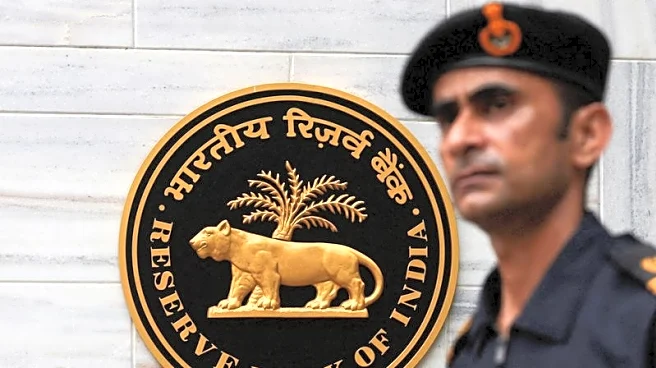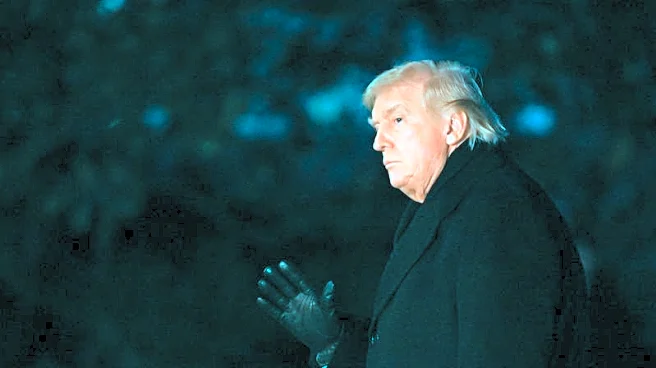Rapid Read • 9 min read
Neil Jacobs, a weather scientist and nominee to lead the National Oceanic and Atmospheric Administration (NOAA), appeared before a Senate committee, pledging to create a cutting-edge weather modeling system while supporting President Trump's plan to significantly reduce the agency's size. NOAA, responsible for issuing life-saving weather alerts, faces staffing shortages and potential budget cuts that could eliminate its research division and reduce funding by 29%. Jacobs, who previously served as NOAA's interim chief, supports these cuts but has provided limited details on funding his proposed modeling program or hiring additional staff. Despite past controversies, including the 'Sharpiegate' scandal, Jacobs has received enough support to advance his confirmation out of committee, though Senate approval is still required.
AD
The potential return of Neil Jacobs to NOAA comes at a critical time as the agency faces significant budget cuts proposed by the Trump administration. These cuts could impact NOAA's ability to provide accurate weather forecasts, which are crucial for public safety and various industries. The reduction in staffing and resources may hinder NOAA's capacity to respond to natural disasters, such as hurricanes, which are becoming more frequent and severe. Jacobs' support for the budget cuts raises concerns about the future of climate research and the agency's ability to maintain its essential operations. Stakeholders, including businesses and emergency managers, rely on NOAA's data for strategic planning and disaster preparedness, making the agency's stability vital for economic and public safety.
If confirmed, Neil Jacobs will need to navigate the challenges posed by the proposed budget cuts while ensuring NOAA continues its mission-essential operations. The agency's ability to adapt to these changes will be closely monitored by Congress and industry stakeholders. Jacobs' plans for a streamlined, cloud-based weather modeling system could offer improvements, but funding and staffing remain critical issues. The Senate's decision on Jacobs' confirmation will determine the agency's leadership direction and its approach to handling the proposed budget reductions. The broader implications for climate research and NOAA's role in disaster response will be key areas of focus for policymakers and the scientific community.
The proposed budget cuts to NOAA reflect a broader trend of reducing federal support for climate research and science agencies. This shift could have long-term implications for the U.S.'s ability to address climate change and prepare for its impacts. The controversy surrounding Jacobs' previous tenure, including 'Sharpiegate,' highlights the challenges of maintaining scientific integrity in politically charged environments. As NOAA faces potential privatization and restructuring, the agency's future role in climate and weather prediction remains uncertain. The outcome of Jacobs' confirmation and the agency's adaptation to budget constraints will be closely watched by environmental advocates and industry leaders.
AD
More Stories You Might Enjoy













